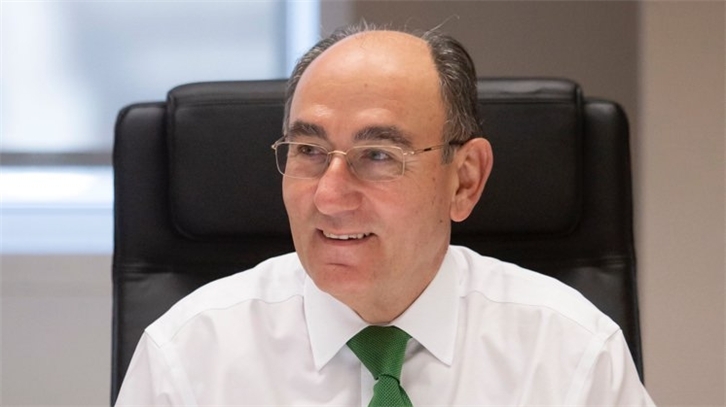–With an investment of nearly 70 million euros, the new renewable project to be developed at the petrochemical facilities will have an installed power of 100 MW
–The alliance reinforces the innovative approach of Iberdrola’s strategy to undertake renewables projects in Spain through bilateral agreements that promote the supply of power at competitive and stable prices to large customers who are committed to sustainable consumption
–With this initiative, SABIC’s industrial complex in Cartagena will become the first large-scale chemical production facility to operate on 100% renewable electricity
PVTIME – Iberdrola and SABIC are making progress in their respective business and sustainability strategies with the signing of a pioneering long-term power purchase agreement (PPA) whereby the energy company will provide green electricity to the industrial plant of the petrochemical multinational in La Aljorra – Cartagena, in Murcia, for the next 25 years.

Based on this agreement, Iberdrola will promote, construct and operate the world’s largest on site photovoltaic self-consumption system. With an investment of nearly 70 million euros, the new renewable facility, which will be developed on the site of SABIC’s industrial plant, will have an installed capacity of 100 megawatts (MW) and will consist of 263,000 solar modules. The facility will increase the renewable capacity installed by Iberdrola in the Region of Murcia by almost 60% and up to 500 jobs will be generated during its construction, many of them local.
The alliance reinforces the innovative approach of Iberdrola’s strategy to undertake renewables projects in Spain through bilateral agreements that promote the supply of power at competitive and stable prices to large customers who are committed to sustainable consumption.
The commissioning of the solar plant will provide SABIC customers in markets including the automotive and construction sectors access to 100% renewable electricity produced polycarbonate solutions, in response to their demand for more sustainable products for a carbon-neutral world.
“PPAs continue to place value on the competitiveness of renewables and continue to open up opportunities for the development of innovative projects that are transforming the present and future of energy in our country. The long-term energy purchase and sales contracts provide stability to investments and have also become an optimal tool for managing the electricity supply of large consumers who are committed to clean and sustainable consumption.”, explains Eduardo Insunza, Global Strategic Customers Director.
Bob Maughon, SABIC’s Executive Vice President, Sustainability, Technology and Innovation at SABIC, adds: “This pioneering agreement with Iberdrola is a significant step towards achieving our long-term sustainability and clean energy goals. Partnerships of this kind are the cornerstone of our business growth model. The photovoltaic solar power plant in Cartagena demonstrates that SABIC continues to drive the sustainability agenda in the chemical industry and that a large-scale transition is possible.
He added, “In recent years, numerous advances in renewable energy technology have made deployment to this extent possible. Our commitment to technology and innovation means that we will always be the first to adopt and are in an optimal position to carry out this transformation immediately. The new photovoltaic plant will deliver an 80kt annual reduction in indirect CO2emissions, and reinforces our support for and contribution to wider climate change initiatives such as Europe 2030 and our alignment with the UN’s Sustainable Development Goals, where we can have the greatest impact”.
RENEWABLES FOR A GREEN RECOVERY
Iberdrola is a global reference point in the area of PPAs and has long-term power purchase agreements (PPAs) in markets that include Spain, the United Kingdom, the United States and Mexico, with wind and photovoltaic power projects with an installed capacity of over 2,500 MW. In Spain, the company has been a pioneer in promoting this type of agreement with companies from sectors such as banking, telecommunications, the brewery industry, distribution and sports brands.
The company is confident that electrification will act as a lever for financial recovery and employment in the post-COVID landscape. To drive that recovery, it is considering investments of €10 billion this year to launch new projects, industrial activity throughout the value chain, and innovation in fields such as renewables, smart grids and large-scale storage systems.
In Spain, Iberdrola is the leader in renewable energies, with an installed wind capacity of more than 6,000 MW and over 16,500 MW in renewables as a whole; totalling more than 32,000 MW worldwide and making its generation facilities among the cleanest in the energy sector. In the Region of Murcia, the company operates 178 MW of renewable energy which is mainly wind power.
Further details: What is a PPA and what are the main benefits?
SABIC’S ENVIRONMENTAL COMMITMENT: SUSTAINABILITY AND THE CIRCULAR ECONOMY
SABIC’s sustainability strategy is guided by materiality analysis to ensure that resources are targeted to the issues most important to its stakeholders and business success. Sustainability is central to SABIC’s business because it helps us create materials that benefit the global economy responsibly, maximise their positive impact on customers and society, and inspire innovation, technology management and operational efficiency.
SABIC is already working to address changing customer and consumer demands through its TRUCIRCLE? portfolio and services. The TRUCIRCLE initiative covers the company’s circular materials and technologies, including certified circular polymers from the chemical recycling of used plastic, certified renewable bio-based polymers and others. The initiative is seen as key for SABIC to drive a world-class circular business and having renewable energy at the source of production strongly contributes to its vision of the future.











